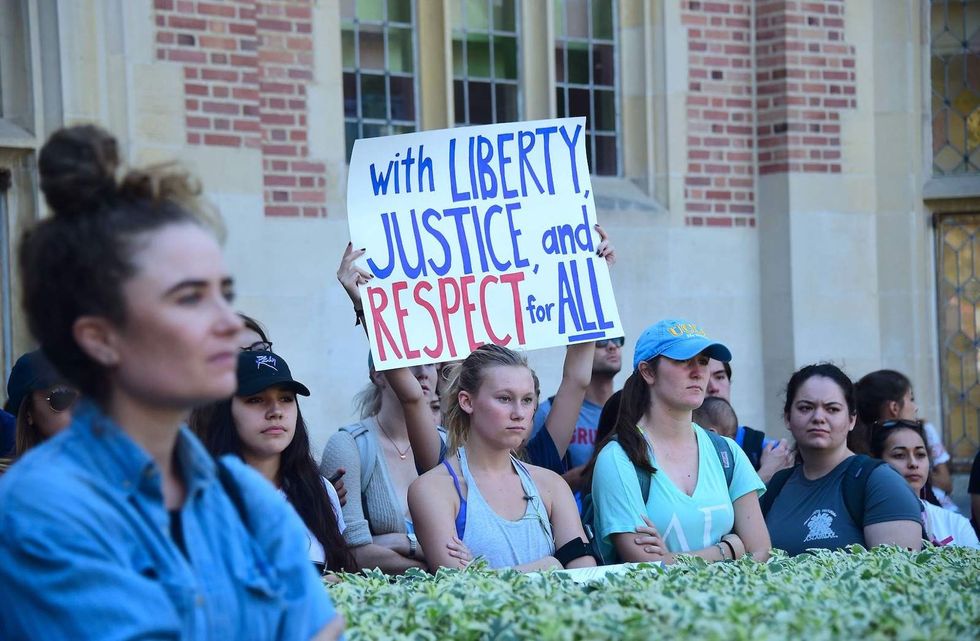Michigan lawmakers are responding to the recent controversy involving Ann Coulter's cancelled speech at the University of California at Berkeley with their own proposed legislation: The Campus Free Speech Act.
Michigan state Sen. Patrick Colbeck (R), the bill's sponsor, said the bill aims to put an end to what he calls "shout-down vetoes" of campus speakers who could be seen as controversial or inflammatory.
Colbeck said a student's right to protest does not extend to preventing the speech from happening.
"You have a right to express your concern with [a speaker], but you don’t have the right to shut them down during the actual speech. … It’s time we look at people who are prohibiting free speech rights, not trying to use that right," Colbeck told Heat Street.
The proposed legislation would apply to all 15 public universities and 28 community colleges in Michigan, and would institute a one-year suspension or expulsion for any student who has on two occasions been found responsible for blocking or "infringing" upon the free speech rights of others on campus. It also allows those who were blocked from free speech to file civil suit in court to recoup any financial loss.
"People have converted our fundamental freedom of speech into a freedom from speech," Colbeck told Michigan Live. "Ultimately, there's people that are just trying to shut down any discussion of issues that they don't agree with."
Joe Cohn, legislative policy director for the Foundation for Individual Rights in Education, said his group supports the bill but worries the language is not specific enough to specifically explain what constitutes "infringement" on free speech. He doesn't want students to be sanctioned for merely voicing objection, such as yelling "boo" at a speaker with whom they disagree.
"The current bill doesn't describe how severe someone's actions need to be to infringe on someone's free speech rights," Cohn said.
The bill also designates that "all public areas on campus" would be "considered as areas for potential public forums that would be equally open on the same terms to any speaker."
"It's gone into very scary territory here," Colbeck said, "and it's antithetical to the freedoms that are guaranteed in our First Amendment."
Last month, GOP lawmakers in Wisconsin announced a similar proposal, calling for students at public universities to be expelled if they have twice been found to disrupt or prevent speeches from taking place on campus.




